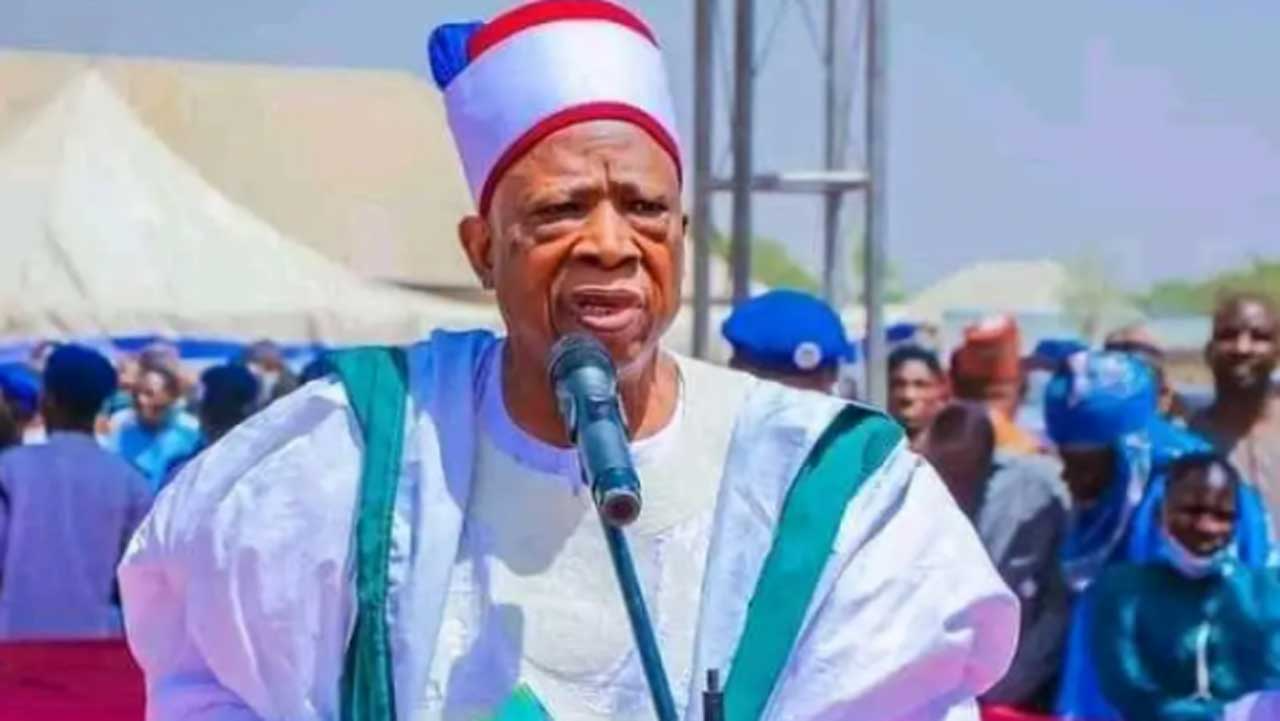APC: The resignation of Senator Abdullahi Adamu
In the ever-evolving world of politics, alliances are forged, and power plays are common. However, when a political party begins to resemble a house of cards, it raises concerns about the stability and unity within its ranks. Such is the case with the recent resignation of Senator Abdullahi Adamu, chairman of the APC, which has […]

In the ever-evolving world of politics, alliances are forged, and power plays are common. However, when a political party begins to resemble a house of cards, it raises concerns about the stability and unity within its ranks. Such is the case with the recent resignation of Senator Abdullahi Adamu, chairman of the APC, which has left many political observers questioning the implications for the party’s future.
Senator Adamu’s decision to step down came amidst a backdrop of strife within the party. Though he had publicly voiced his lack of support for Tinubu in the party’s presidential primary elections, as he backed Ahmed Lawan, he surprised many by campaigning vigorously for him. This contradiction reflects the complexities of party politics, where party allegiances often overshadow ideological differences.
The rift, needlessly created by Tinubu, would have significant ramifications for the APC, as it highlights the internal divisions that have been simmering beneath the surface. The reported altercation between EFCC and the police at Senator Adamu’s Abuja residence adds further intrigue to the situation. Whether it was an unfortunate coincidence or a calculated move, it undoubtedly fuelled tensions within the party.
As an elder statesman, the Turakin Keffi, Senator Adamu’s stature demands a level of respect and deference, considering his years of experience and service to the nation. Treating him with the same approach as Emefiele, who was a direct adversary to Tinubu, could be seen as both inappropriate and unwise.
- Police rescue 2 jungle justice victims, warn perpetrators
- NIGERIA DAILY: How Nigerians Suffer Due To Fuel Price Hike
Emefiele’s introduction of an economy-crashing policy, such as the naira redesign, in an attempt to undermine Tinubu’s success, exemplifies the intensity of political rivalries. In contrast, Senator Adamu’s resignation from the APC chairmanship hints at underlying issues within the party that require careful and tactful handling.
Recognising the difference in their positions and motivations is crucial to steering party politics’ difficulties while respecting esteemed elder statesmen like Senator Adamu.
The unconventional handling of such a respected figure might alienate not only him but also his supporters and allies within the party. Such alienation will worry the nPDP and the CPC factions of the APC following the public altercation and the internal friction with Senator Abdulaziz Yari.
Indeed, the resignation can potentially exacerbate existing divisions within the party. It is seen like the old ACN is kicking out those that joined them to form the APC even though the divisions mainly revolve around Buhari’s faction and Tinubu’s camp. From their perspective, the Tinubu camp sees these conflicts as a victory, but this is not new, and consequences have followed. If only they could look back to 2011 or seek the counsel of Goodluck Jonathan.
It is worth noting that uniting different factions of the APC, including the nPDP, CPC and ACN, under a common umbrella helped keep the party in power. With Turaki’s departure, the previously fostered unity might face challenges, as it creates room for further disagreements and potential power struggles within the party.
The rifts between Buhari’s loyalists and those aligned with Tinubu could widen, potentially leading to a fracturing of the party’s cohesiveness. As the APC confronts this internal challenge, the political landscape in Nigeria could witness significant shifts, potentially impacting the party’s stability and electoral prospects.
The coming days will be critical in determining how the party leadership handles this situation and whether they can successfully preserve the delicate balance between Buhari’s faction and Tinubu’s camp.
The silver lining for this dark cloud is viewed from the lens of the main opposition party and the neutrals. The resignation of Turaki can indeed be seen as a move towards equity, especially when considering recent events like the ousting of the PDP chairman, Ayu.
In politics, the balance of power and leadership positions among major parties is crucial for a functioning democracy. However, it is important to note that equity doesn’t solely depend on leadership changes. It also involves ensuring inclusivity, fairness, and equal representation within the party structures and across all levels of governance.
Therefore, while the resignation of both party leaders may bring a sense of equity in leadership rotations, a broader commitment to inclusivity and fairness remains essential for a thriving democratic process in Nigeria.
Moreover, the opposition parties keenly observe these internal schisms with interest. A divided APC could provide an advantageous scenario for opposition parties to exploit in their quest for power. The opposition parties may perceive this as a golden opportunity to poach disillusioned members of the APC, potentially further weakening the party’s stronghold.
Indeed, the unfolding drama surrounding the Presidential Election Petition Tribunal can have significant implications for the ruling party. If the courts call for a re-run of the presidential election, it could potentially lead to a reshuffling of the political landscape and may put the party’s leadership under scrutiny. In such a scenario, ousting party leadership could be risky for the ruling party.
The call for new leadership amid the uncertainty of a re-run election could cause internal divisions and weaken the party’s cohesiveness. It might also give an advantage to opposition parties, who could use the opportunity to capitalise on the ruling party’s internal turmoil and present themselves as a more stable alternative.
In a saner clime, the resignation of Turakin Keffi should present APC with the opportunity for self-reflection and introspection. However, if they see the resignation as a victory for the Tinubu camp, then APC, as a party, will be taking a very costly risk of becoming a mere house of cards.
